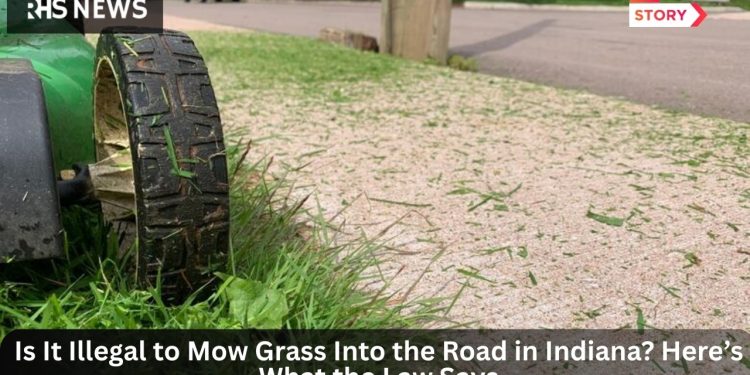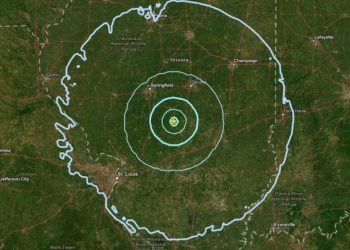When springtime arrives in Indiana, neatly mowed lawns become a suburban staple. But a common sight—and a growing concern—is grass clippings scattered across roadways after mowing. This seemingly harmless act raises the question: Is it illegal to mow grass into the road in Indiana, and what are the legal and practical implications for residents?
Indiana State Law and Grass Clippings on Roadways
This Article Includes
- 1 Indiana State Law and Grass Clippings on Roadways
- 2 Related posts
- 3 Villager who escaped prosecution in attack on husband apprehended again
- 4 List of School Cancellations for Friday as Snowstorm Approaches
- 5 Relevant Indiana Code: Debris on Public Highways
- 6 County and Municipal Ordinances
- 7 Why Are Grass Clippings a Legal Issue?
- 8 Legal Implications and Potential Consequences
- 9 Best Practices: Stay on the Right Side of the Law
- 10 Conclusion
No Explicit Statewide Law… But Important Related Statutes
Indiana does not have a specific statewide law that explicitly states, “It is illegal to blow or deposit grass clippings into roadways.” However, that’s not the full story. Instead, several state statutes and local ordinances address objects and substances that create road hazards—including grass clippings.
Relevant Indiana Code: Debris on Public Highways
The key statute is Indiana Code 35-43-3-2 (“Criminal Mischief”), which prohibits obstructing a highway or public passage. Specifically, the law makes it unlawful to place or leave anything on a roadway that can create a hazard:
“A person who, without the consent of the person entitled to possession of the property, knowingly or intentionally places or leaves a [substance] that is likely to injure any person or property in a public way, commits criminal mischief.”
Similarly, Indiana Code 9-21-16-2 states:
“A person who throws, places, or deposits upon a highway any refuse, litter, or material that is likely to injure a person, animal, or vehicle upon the highway commits a Class A infraction.”
Since grass clippings can be slippery, especially for motorcycles and bicycles, they are generally considered “material likely to injure” road users under this statute.
County and Municipal Ordinances
Many counties and cities in Indiana enact their own ordinances, sometimes more explicit. For example, in some communities, local code enforcement can issue fines for depositing anything—including grass or leaves—onto streets or public rights-of-way.
Why Are Grass Clippings a Legal Issue?
While it may appear trivial, grass clippings present notable hazards:
- Slippage: Fresh, wet clippings are slick and can cause motorcycles, bicycles, and even cars to lose traction, leading to potentially severe accidents.
- Drainage Problems: Clippings can clog storm drains, causing street flooding and pollution of local waterways.
Because of these risks, law enforcement and highway departments treat grass clippings as an obstruction similar to gravel, mud, or other debris.
Legal Implications and Potential Consequences
- Citations and Fines: Violating Indiana Code 9-21-16-2 is a Class A infraction, which can carry fines up to $10,000 for individuals (although fines for private citizens are typically lower).
- Liability for Accidents: If a motorist, especially a motorcyclist or bicyclist, is injured because of grass clippings you left on the road, you could be held civilly liable for damages.
- Criminal Charges: In cases where someone is seriously injured or killed due to your negligence, criminal charges (such as criminal recklessness or even involuntary manslaughter, depending on the circumstances) could be considered.
Best Practices: Stay on the Right Side of the Law
To avoid legal trouble and help keep Indiana’s roads safe:
- Mow so clippings are directed away from the street.
- If some accidentally get blown into the road, promptly sweep or blow them back onto your property.
- Monitor local ordinances, as your municipality may impose stricter rules and fines.
- Encourage neighbors and lawn service providers to follow these practices.
Conclusion
While Indiana doesn’t explicitly ban mowing grass into public roadways at the state level, a combination of state statutes and local ordinances—along with potential civil liability—establish clear legal risks. Beyond legality, leaving clippings on public roads endangers others. For the sake of safety, responsibility, and compliance, always keep your yard debris off the street and on your own property









